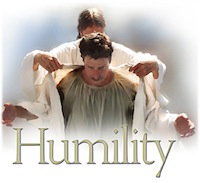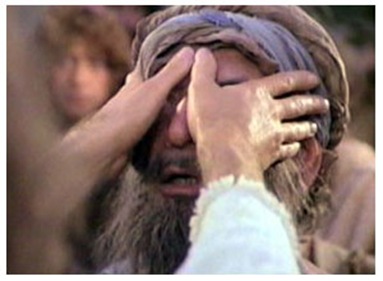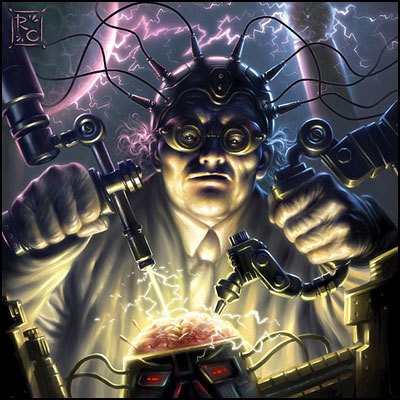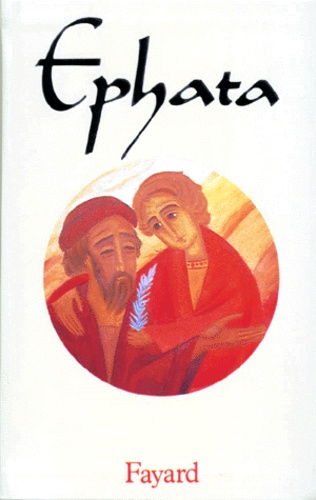
Holy Gospel of Jesus Christ according to Saint Matthew 18:21-35.
Peter approached Jesus and asked him, «Lord, if my brother sins against me, how often must I forgive him? As many as seven times?»
Jesus answered, "I say to you, not seven times but seventy-seven times.
That is why the kingdom of heaven may be likened to a king who decided to settle accounts with his servants.
When he began the accounting, a debtor was brought before him who owed him a huge amount.
Since he had no way of paying it back, his master ordered him to be sold, along with his wife, his children, and all his property, in payment of the debt.
At that, the servant fell down, did him homage, and said, 'Be patient with me, and I will pay you back in full.'
Moved with compassion the master of that servant let him go and forgave him the loan.
When that servant had left, he found one of his fellow servants who owed him a much smaller amount. He seized him and started to choke him, demanding, 'Pay back what you owe.'
Falling to his knees, his fellow servant begged him, 'Be patient with me, and I will pay you back.'
But he refused. Instead, he had him put in prison until he paid back the debt.
Now when his fellow servants saw what had happened, they were deeply disturbed, and went to their master and reported the whole affair.
His master summoned him and said to him, 'You wicked servant! I forgave you your entire debt because you begged me to.
Should you not have had pity on your fellow servant, as I had pity on you?'
Then in anger his master handed him over to the torturers until he should pay back the whole debt.
So will my heavenly Father do to you, unless each of you forgives his brother from his heart."
Commentary of the day : Byzantine and Eastern liturgies for the Great Lent
Taking pity on our neighbor as God has had pity on us
O Lord and Master of my life,
give me not a spirit of sloth, vain curiosity,
lust for power and idle talk.
(Prostration)
But give to me, Thy servant,
a spirit of soberness, humility, patience and love.
(Prostration)
O Lord and King,
grant me to see my own faults
and not to condemn my brother:
for blessed art Thou to the ages of ages. Amen.
(Prostration. Then three times with a bow after each.)
O God, be merciful to me a sinner.
O God, cleanse me, a sinner.
O God, my Creator, save me
and for my many sins forgive me!
give me not a spirit of sloth, vain curiosity,
lust for power and idle talk.
(Prostration)
But give to me, Thy servant,
a spirit of soberness, humility, patience and love.
(Prostration)
O Lord and King,
grant me to see my own faults
and not to condemn my brother:
for blessed art Thou to the ages of ages. Amen.
(Prostration. Then three times with a bow after each.)
O God, be merciful to me a sinner.
O God, cleanse me, a sinner.
O God, my Creator, save me
and for my many sins forgive me!





![[heavens_door.jpg]](https://blogger.googleusercontent.com/img/b/R29vZ2xl/AVvXsEhSZc5uGVgIEbLQJs57JYPYQZhbbSsLm0whDgmy8W_blqTyVd_UjPeKp547ea5778Tw52_3TvvwnBWYn3R7WxIMZpXaP9CPUYqajkJQ9x6MVgZ5uegaNINTdIZN_BQNr8KtHKBJhKIH-ajj/s320/heavens_door.jpg)




 Holy Gospel of Jesus Christ according to Saint Matthew 16:13-19.
Holy Gospel of Jesus Christ according to Saint Matthew 16:13-19. 

 Holy Gospel of Jesus Christ according to Saint Mark 8:27-33.
Holy Gospel of Jesus Christ according to Saint Mark 8:27-33. 




 Holy Gospel of Jesus Christ according to Saint Mark 7:1-13.
Holy Gospel of Jesus Christ according to Saint Mark 7:1-13. 




 Holy Gospel of Jesus Christ according to Saint Mark 5:1-20.
Holy Gospel of Jesus Christ according to Saint Mark 5:1-20. 